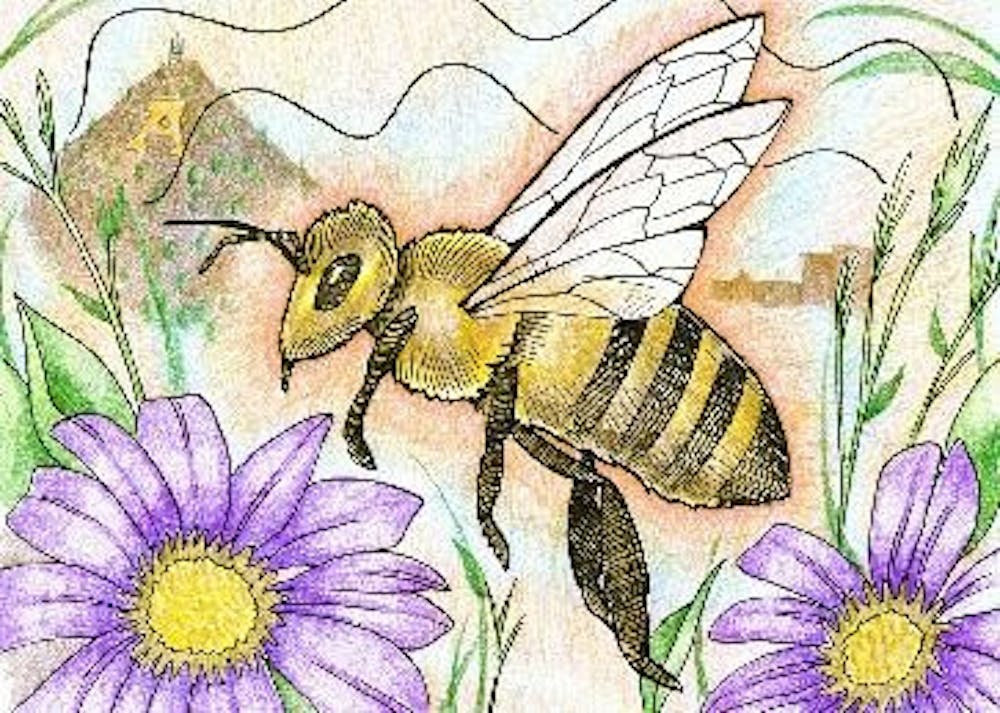In 2022, 48% of honey bee colonies across the United States were lost. While most of the conversation around the issue has focused on climate change and habitat destruction, researchers have argued that the main cause of population decline has actually been the rising use of chemicals and pesticides on crops.
Jon Harrison is an environmental physiologist at ASU's School of Life Sciences and has been researching honey bees since 1982. After years of research on this topic, he believes that while several causes come into play regarding the population crisis, chemical pest control has had the most lethal affect on bee populations.
"There have also been invasive pathogens," Harrison said. "Varroa mites came into the honey bee populations in the last decade and had a major impact on honey bee colony survival."
Controlling these mites was previously a simpler task since individual chemicals targeting insects or fungi are typically safe for bees.
Varroa mites spread bacteria that have become increasingly resistant to pesticides, which has resulted in combinations of chemical control methods. When combined, however, the once-safe chemicals have a lethal effect on bees.
"Certainly pesticide exposure is a major issue," Harrison said. "Insecticides, like neonicotinoids, and also fungicides and herbicides have a sublethal but very serious effect on bees."
Due to their role as natural pollinators, if the rate of colonies continues to drop in large numbers, many of the foods that humans consume could potentially be lost.
Nicole DesJardins is an ASU alumnus now working at the University of Wisconsin-Madison researching bees and pollinator health. She believes that if the number of colonies continues to drop, it could have severe impacts on the economy.
"When we think about the effects that this could be having, pollinators are responsible for about a third of the food we eat," DesJardins said. "Specifically a lot of fruits, vegetables and nuts. You can think about those things becoming less available, and the prices going up in general. As the beekeepers face rising costs, then the growers also have to pay more to the beekeepers."
READ MORE: ASU joins nonprofit initiative Bee Campus USA in bee protection
As the economic cost for crops pollinated by bees continues to grow, this could have the potential to cause issues with the world economy or have even more severe effects. Cahit Ozturk, a research technologist and associate researcher at ASU, believes at this rate, declining bee colonies could have severe consequences all around the world.
"If (people) cannot afford food, they are going to start fighting with wealthy people, and it's going to be a big crisis," Ozturk said. "It can even stimulate some wars in the future."
Ozturk paraphrased an Albert Einstein quote that he said can still be applicable today, "If we lose all bees, humanity can live maybe a few more years." Ozturk said it is an old quote, but is still relevant because of how much humanity relies on pollinators, like honey bees, for food sources.
While pesticides are used for the majority of grown food in the world, there are several things the average person can do that help with the issue. On the individual level, Harrison said buying organic foods that are pollinated by bees without the same harmful chemicals is helpful. Harrison also recommends supporting local policy initiatives dedicated to saving bee colonies.
Edited by River Graziano, Jasmine Kabiri and Shane Brennan
Reach the reporter at hrhea@asu.edu.
Like The State Press on Facebook and follow @statepress on X.

Hunter is a senior studying technological leadership. This is his fourth semester with The State Press. He has also worked as a legislative intern.




